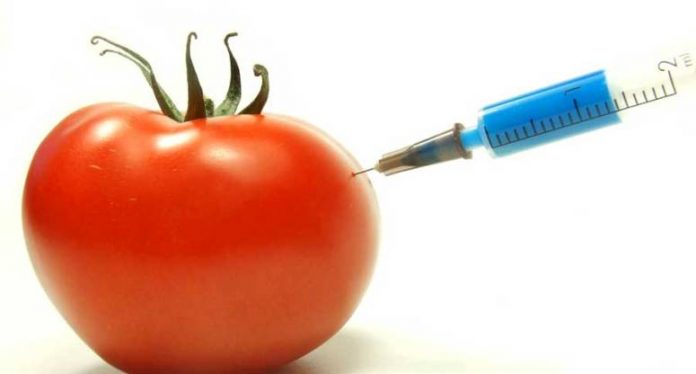Genetically modified organisms are a testament to how far we’ve come as a scientific species. Being able to change the DNA of different organisms to make them more resilient to things like frost and drought and flooding, or to make them resistant to bugs, parasites or insecticides…
But do you know how companies make GMOs? They take bits of DNA from different kinds of organisms and attempt to splice them together to get a new, better product (i.e. tomatoes that are resistant to frost; corn, canola, soybeans and wheat that are resistant to herbicides, etc). The idea is fantastic. The reality is horrible.
The original DNA of an organism is designed to reject foreign bodies, so in order to convince the host to accept this parasitic DNA, they use other DNA from things like E Coli virus and other bacteria to transfer the new DNA packet into the host plant, tricking the host into accepting it.
The companies that do this originally thought that each gene only expressed one trait, and that by doing this, only the new trait would be introduced to the host plant. However, we know better now. Each gene expresses a whole slew of different traits, and by splicing even one gene in, you’re introducing a whole ton of other uncontrolled, unknown traits into the host plant, and therefore into the food.
These companies promise us that these foods are safe for consumption, and yet they have not done in-depth testing of the consequences of their actions. You also have to take in to consideration that as these new DNA sequences replicate and reproduce, any new mutations could cause catastrophic consequences for either the plants, or the people consuming them. Top all of that off with the fact that these companies have fought long and hard for the “right” to not label their foods as GMOs, and you have a whole boatload of problems waiting to happen.
There are some people that are allergic to the new GMO food. Without a label, how do you know if you are allergic to all corn, or just the genetically modified corn? How can you pinpoint where a reaction is coming from if the company or product does not have any accountability? You are currently eating GMOs every day, and do not even realize it! A lot of GMO corn is turned into corn syrup – a sugary additive in many products.
Another problem with GMOs and the companies who make them has to do with patent law. These companies have patented life. Any seed with their patented genetically modified gene belongs to them, and you have to pay to use it. They have made it very clear that if you use their genetically modified seeds, you are not allowed to save the seeds from the plants to use for the following year. You have to destroy or return all of them to the company, and buy new ones all over again. When 75% of farmers across the globe use seed-saving as their primary source of seeds for planting in subsequent years, these companies are seriously threatening to put farmers everywhere out of business.
These companies have launched huge lawsuits against small farmers across America (and some in Canada and Mexico, as well), after the company sent representatives to the farms to test plants for their genetically modified seeds (trespassing and stealing, by the way). Many small farmers have refused to buy seeds from these companies, and yet because of external circumstances, the genetically modified seeds have contaminated their crops. Examples of these external circumstances are: wind carrying seeds or pollen from one field to another, birds and animals carrying seeds unwittingly into another field, or a farmer driving a truck load of genetically modified seeds next to someone else’s (not genetically modified) fields and some of the seeds falling off the truck (this actually happened to one farmer, and he was sued by the GMO company Monsanto).
All of these problems are compounded by the fact that the “higher-ups” that are supposed to be looking out for the rights of the people are sitting in the pockets of companies like Monsanto. When the people in charge of the FDA, and other food safety organizations are the same CEOs and chairmen for Monsanto and their subsidaries, how are we to expect them to be unbiased about our health and well-being?















